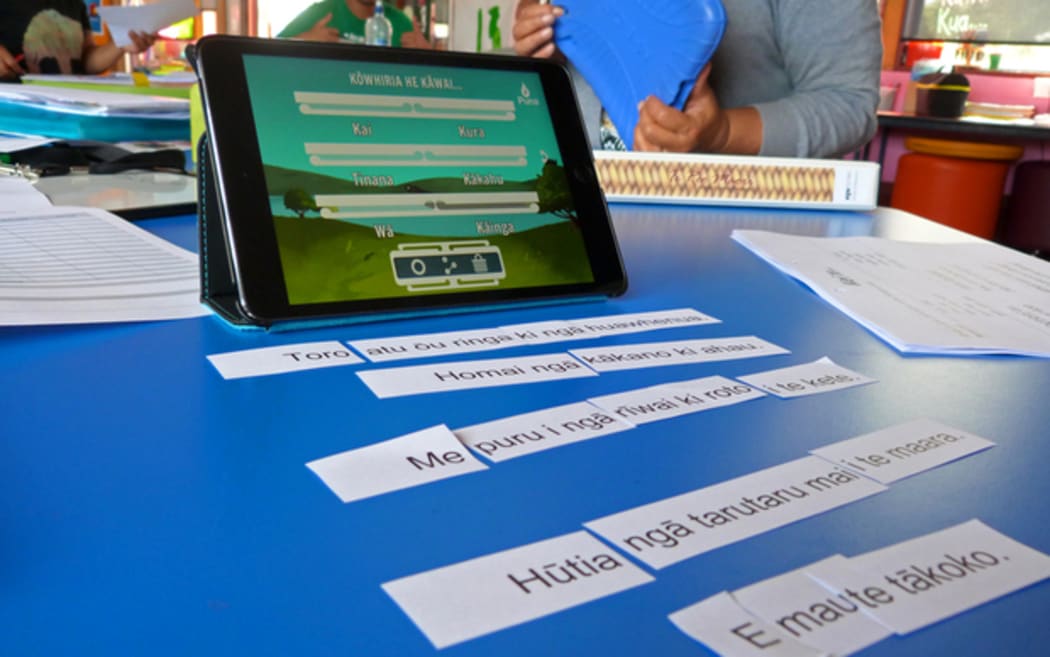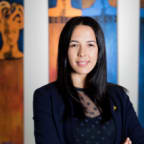Kura kaupapa leaders are frustrated that new funding to lift Māori achievement will be mainly spent on mainstream teachers.

Photo: RNZ / Tom Furley
They are at breaking point after what they say has been years of inaction from the government on more than a dozen concerns for kura kaupapa, such as a lack of resourcing and acknowledgement.
Last month's Budget announcement was the last straw for the Māori immersion education collective, Te Rūnanga o Ngā Kura Kaupapa Māori o Aotearoa, who are considering taking a case to the United Nations and the Waitangi Tribunal.
The Labour-led government chose to invest its new Māori achievement funding in teachers at mainstream schools speaking better te reo Māori.
Runanga Nui chair Cathy Dewes said the initiative will not go far enough.
"I learned French for seven years and yes I could speak French with a certain level of competence," she said.
"But I had no idea of what it would be to live like a French person. I had no idea what their values were, what their customs were, what their beliefs were. I knew some words."
Education received $1.3 billion dollars over four years in Budget 2018, but just $16.3 million was focused on lifting Māori achievement.
The money is being targeted at initiatives including a roll out of reo Māori classes for some teachers, reducing unconscious bias and a big event in September to showcase te reo across the education system.
Ms Dewes said nothing was targeted at kura kaupapa, where students in some senior maths classes are going without text books.
Te Kura Kaupapa Motuhake o Tawhiuau principal Pem Bird said not targetting kura kaupapa is disgraceful and negligent, and ignores them completely.
"We have got a context that is not considered, and the context is that we are tangata whenua," he said.
"The context is that our language is the endangered one. The context is that there is a correlation between children, our uri, our mokopuna, educated in te reo Māori and leading a successful life."
Ms Dewes said in 2015 they met with the former government and set out to resolve resourcing and other issues, but nothing has happened since.
Now they are considering taking their concerns to the Waitangi Tribunal. She is part of a group penning a letter to the United Nations.
"The level of frustration is extremely high," she said.
"We have considered marching, another march - another Whina Cooper march - from Te Reinga to Parliament, to bring attention to it."
Associate Education Minister Kelvin Davis said kura kaupapa have not missed out, because they got an operational grant. The same grant that all other state schools received.
"Our priorities are first and foremost helping people to heat their homes, to feed their kids... all of which helps when they get to school and better prepares kids to learn."
He is backing the investment in mainstream teachers and said they are able to ensure Māori students have a positive experience at school.
The kura kaupapa leaders agree that teachers delivering better reo Māori is a step in the right direction, but Runanga Nui executive officer Rawiri Wright said the lionshare of funding for Māori achievement should go to kura kaupapa ahomatua.
"Considerable numbers of Māori and Pasifika kids continue to fall through the gap in that mainstream system of theirs," he said.
They become the next generation of the homeless, of the unemployed, of the disenfranchised."
Iwi and education leaders are being rallied to attend a summit in Rotorua at the end of the month, to form a united voice for Māori education


